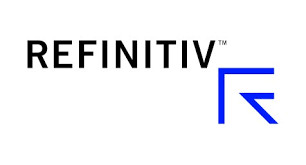
Financial information provider Refinitiv will be bought by Britain's London Stock Exchange for $27 billion with the aim of turning the company into a rival of Bloomberg. Refinitiv will offer trading across regions and currencies.
If the deal goes through the regulator and is approved by the shareholders of LSE, Refinitiv will be transformed into a major distributor as well as a content and data creator for the financial market.
“This transaction is a defining moment for LSE in terms of its strategic importance,” its chairman Don Robert said in a statement confirming the deal. This deal is expected to expand the services offered by LSE beyond its trading business of shares and derivatives and venture into currencies through the FXALL of by taking on Refinitiv and matching platforms.
"Increasingly our customers want to trade across different regions and currencies," LSE Chief Executive Schwimmer said on a call with journalists after the deal. Refinitiv was purchased from Thomson Reuters about ten months ago by a Blackstone-led consortium.
According to report, if the deal ultimately goes through, it will be a game changer for the US private equity group and the value of its investment would be doubled. About 37 per cent of the new entity would belong to the shareholders of Refinitiv while less than 30 per cent of total voting rights would be held by LSE.
The new entity would be chaired by Robert, LSE said, while LSE chief executive David Schwimmer will continue to retain the position in the new company, LSE said. On the other hand, LSE's executive committee will be joined by Refinitiv chief executive David Craig and will be running the new company.
In 2017, an attempt of a merger between LSE and rival Deutsche Boerse was blocked by competition regulators of the European Union. Reports said that thus time, the deal would take about 18 months to get through regulators because a full competition investigation is expected to be conducted about the deal.
The regulators would pass the "rare and compelling" deal, said confident LSE executives. "We have two very complementary businesses, they are more complementary than they are overlapping," Schwimmer said.
According to regulators, they have been receiving complaints from asset managers about exchanges charging very high fees for data on share prices. The LSE has assured that its pledge to retain “open access” would be retained by it following the completion of the deal. "The issue is largely a U.S. issue in terms of concern around market data pricing," Schwimmer said, adding that LSE had no plans for any divestments.
Property, technology and corporate services are the areas that are overlapping and could yield cost savings, pointed out LSE Chief Financial Officer David Warren even though Schwimmer said any comment on possible job losses would be premature.
LSE expects the deal to complete by the second half of 2020.
But the deal is taking place at a time when there is high uncertainty over the exit of the United Kingdom from the EU.
(Source:www.nasdaq.com)
If the deal goes through the regulator and is approved by the shareholders of LSE, Refinitiv will be transformed into a major distributor as well as a content and data creator for the financial market.
“This transaction is a defining moment for LSE in terms of its strategic importance,” its chairman Don Robert said in a statement confirming the deal. This deal is expected to expand the services offered by LSE beyond its trading business of shares and derivatives and venture into currencies through the FXALL of by taking on Refinitiv and matching platforms.
"Increasingly our customers want to trade across different regions and currencies," LSE Chief Executive Schwimmer said on a call with journalists after the deal. Refinitiv was purchased from Thomson Reuters about ten months ago by a Blackstone-led consortium.
According to report, if the deal ultimately goes through, it will be a game changer for the US private equity group and the value of its investment would be doubled. About 37 per cent of the new entity would belong to the shareholders of Refinitiv while less than 30 per cent of total voting rights would be held by LSE.
The new entity would be chaired by Robert, LSE said, while LSE chief executive David Schwimmer will continue to retain the position in the new company, LSE said. On the other hand, LSE's executive committee will be joined by Refinitiv chief executive David Craig and will be running the new company.
In 2017, an attempt of a merger between LSE and rival Deutsche Boerse was blocked by competition regulators of the European Union. Reports said that thus time, the deal would take about 18 months to get through regulators because a full competition investigation is expected to be conducted about the deal.
The regulators would pass the "rare and compelling" deal, said confident LSE executives. "We have two very complementary businesses, they are more complementary than they are overlapping," Schwimmer said.
According to regulators, they have been receiving complaints from asset managers about exchanges charging very high fees for data on share prices. The LSE has assured that its pledge to retain “open access” would be retained by it following the completion of the deal. "The issue is largely a U.S. issue in terms of concern around market data pricing," Schwimmer said, adding that LSE had no plans for any divestments.
Property, technology and corporate services are the areas that are overlapping and could yield cost savings, pointed out LSE Chief Financial Officer David Warren even though Schwimmer said any comment on possible job losses would be premature.
LSE expects the deal to complete by the second half of 2020.
But the deal is taking place at a time when there is high uncertainty over the exit of the United Kingdom from the EU.
(Source:www.nasdaq.com)














